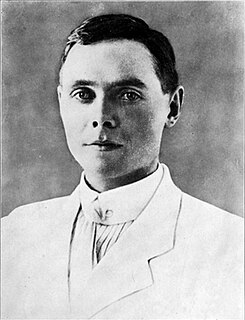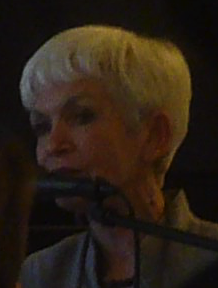
Kaminaljuyu is a Pre-Columbian site of the Maya civilization that was primarily occupied from 1500 BC to AD 1200. Kaminaljuyu has been described as one of the greatest of all archaeological sites in the New World by Michael Coe, although its remains today – a few mounds only – are far less impressive than other Maya sites more frequented by tourists. When first mapped scientifically, it comprised some 200 platforms and pyramidal mounds, at least half of which were created before the end of the Preclassic period. Debate continues about the size, scale, and degree by which, as an economic and political entity, it integrated both the immediate Valley of Guatemala and the Southern Maya area.
Loving v. Virginia, 388 U.S. 1 (1967), was a landmark civil rights decision of the U.S. Supreme Court in which the Court ruled that laws banning interracial marriage violate the Equal Protection and Due Process Clauses of the Fourteenth Amendment to the U.S. Constitution.

The slave codes were laws relating to slavery and enslaved people, specifically regarding the Atlantic slave trade and chattel slavery in the Americas.
The Zamorano Pan-American Agricultural School , generally known as El Zamorano or Zamorano, is a private, coeducational university located in the valley of the Yeguare river, Honduras. El Zamorano's main focus is agricultural and there are four different programs to choose from in the school. Enrollment stands at more than 1000 students. It is currently registered in Delaware as a 501(c)3 non-profit organisation.

Paul Bowman Popenoe was an American agricultural explorer and eugenicist. He was an influential advocate of the compulsory sterilization of mentally ill people and people with mental disabilities, and the father of marriage counseling in the United States.
A book review is a form of literary criticism in which a book is merely described or analyzed based on content, style, and merit. A book review may be a primary source, opinion piece, summary review or scholarly review. Books can be reviewed for printed periodicals, magazines and newspapers, as school work, or for book websites on the Internet. A book review's length may vary from a single paragraph to a substantial essay. Such a review may evaluate the book on the basis of personal taste. Reviewers may use the occasion of a book review for an extended essay that can be closely or loosely related to the subject of the book, or to promulgate their own ideas on the topic of a fiction or non-fiction work.

Public sociology is a subfield of the wider sociological discipline that emphasizes expanding the disciplinary boundaries of sociology in order to engage with non-academic audiences. It is perhaps best understood as a style of sociology rather than a particular method, theory, or set of political values. Since the twenty-first century, the term has been widely associated with University of California, Berkeley sociologist Michael Burawoy, who delivered an impassioned call for a disciplinary embrace of public sociology in his 2004 American Sociological Association (ASA) presidential address. In his address, Burawoy contrasts public sociology with what he terms "professional sociology", a form of sociology that is concerned primarily with addressing other academic sociologists.

Sociology of the family is a subfield of the subject of sociology, in which researchers and academics study family structure as a social institution and unit of socialization from various sociological perspectives. It can be seen as an example of patterned social relations and group dynamics.
Ethnoecology is the scientific study of how different groups of people living in different locations understand the ecosystems around them, and their relationships with surrounding environments.

Albion's Seed: Four British Folkways in America is a 1989 book by David Hackett Fischer that details the folkways of four groups of people who moved from distinct regions of Great Britain (Albion) to the United States. The argument is that the culture of each of the groups persisted, to provide the basis for the political culture of the modern United States. Fischer explains "the origins and stability of a social system which for two centuries has remained stubbornly democratic in its politics, capitalist in its economy, libertarian in its laws and individualist in its society and pluralistic in its culture."
The Blacksburg Electronic Village or BEV was conceived as a project of Virginia Tech in 1991 and officially born in 1993. The goal of the project was to develop an online community linking the entire town. Extensive outside research had been done by sociologists and computer scientists on this project. It has been noted as one of the most important assets that Blacksburg has besides Virginia Tech itself.

Sociology is a social science that focuses on society, human social behavior, patterns of social relationships, social interaction, and aspects of culture associated with everyday life. It uses various methods of empirical investigation and critical analysis to develop a body of knowledge about social order and social change. While some sociologists conduct research that may be applied directly to social policy and welfare, others focus primarily on refining the theoretical understanding of social processes and phenomenological method. Subject matter can range from micro-level analyses of society to macro-level analyses.

The history of the family is a branch of social history that concerns the sociocultural evolution of kinship groups from prehistoric to modern times. The family has a universal and basic role in all societies. Research on the history of the family crosses disciplines and cultures, aiming to understand the structure and function of the family from many viewpoints. For example, sociological, ecological or economical perspectives are used to view the interrelationships between the individual, their relatives, and the historical time. The study of family history has shown that family systems are flexible, culturally diverse and adaptive to ecological and economical conditions.
Philip Rieff was an American sociologist and cultural critic, who taught sociology at the University of Pennsylvania from 1961 until 1992. He was the author of a number of books on Sigmund Freud and his legacy, including Freud: The Mind of the Moralist (1959) and The Triumph of the Therapeutic: Uses of Faith after Freud (1966). He married his 17 year-old student Susan Sontag after 10 days of courtship in the 1950s. The marriage lasted eight years during which their son, David Rieff—a writer and editor of his mother's personal journals—was born. His second wife and widow Alison Douglas Knox died December 12, 2011.

William Bradford Wilcox is an American sociologist. He serves as Director of the National Marriage Project and Professor of Sociology at the University of Virginia, Senior Fellow at the Institute for Family Studies, and a Visiting Scholar at the American Enterprise Institute.
Frederick Wilson Popenoe was an American Department of Agriculture employee and plant explorer. From 1916 to 1924, Popenoe explored Latin America to look for new strains of avocados. He reported his adventures to the National Geographic Society. He went to work for the U.S. Department of Agriculture in 1913 and became the chief agronomist of the United Fruit Company in 1925.

Judith G. Stacey is an author and Professor Emerita of Social and Cultural Analysis and Sociology at New York University. Her primary focus areas include gender, family, sexuality, feminist and queer theory, and ethnography. Her book Unhitched explores family configurations that deviate from the standard Western concept of "marriage", including polygamous families in South Africa, the Mosuo people in southwestern China, and intimacy and parenthood among gay men in Los Angeles, California. She has published many works. She is perhaps most known for her paper, co-authored with Timothy Biblarz, titled "(How) Does the Sexual Orientation of Parents Matter?" This study found that children with gay or lesbian parents "are well-adjusted, have good levels of self-esteem and are as likely to have high educational attainments as children raised in more traditional heterosexual families."

The Virginia State Colony for the Epileptics and Feeble Minded was a state run institution for those considered to be “Feeble minded” or those with severe mental impairment. The colony opened in 1910 near Lynchburg, Virginia in Madison Heights with the goal of isolating those with mental disabilities and other qualities deemed unfit for reproduction away from society. The colony was the home of Carrie Buck, the subject of the landmark Supreme Court case Buck v. Bell.
Roswell Hill Johnson (1877–1967) was an American eugenics professor in the early twentieth century. Born in Buffalo, New York in 1877 and educated at Brown University, Harvard, and the University of Chicago and University of Wisconsin–Madison, Johnson conducted research at the Anatomical Laboratory of the University of Wisconsin and at the Carnegie Institution's Station for Experimental Evolution. He joined the Carnegie staff in July 1905 as an assistant to Charles Davenport, the nation's most influential eugenicist in the first quarter of the twentieth century. Johnson's early work involved ladybugs, whose short life cycle made them ideal for studying evolution. He also developed techniques for locating underground petroleum reserves.
The National Newspaper Syndicate, originally known as the John F. Dille Co., was a syndication service that operated from 1917 to c. 1984. It was founded by Chicago businessman John F. Dille and specialized in comic strips and gag cartoons. It also carried advice columns, such as Paul Popenoe's "Modern Marriage." It is most well known for syndicating Buck Rogers, considered by many to be the first adventure comic strip.









